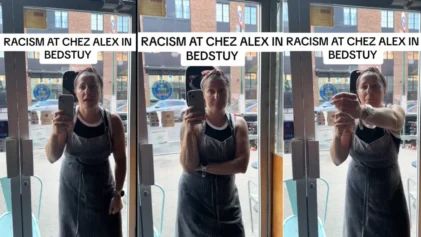The city of Atlanta has designated formerly incarcerated people a protected class, granting them legal protection from discrimination.
The city council unanimously voted in favor of the measure on Oct. 17. Advocates and those impacted said it could remove economic barriers for thousands of people, many of who are Black, and decrease recidivism.

“With this vote, the City of Atlanta is taking the first step in recognizing that we all are human beings,” Bridgette Simpson of Barred Business said in a statement. “Formerly incarcerated people have the right to move on from the sentences we served and should be able to access things like housing, employment and other basic needs that are essential for all people to live safely in this society.”
Atlanta Councilman Matt Westmoreland, one of the measure’s sponsors, said it was a request of residents who say they have been unfairly treated because of their criminal history.
The adopted ordinance bars businesses within Atlanta from denying formerly incarcerated people jobs or housing solely because of their criminal record.
The ordinance says: “any adverse hiring decisions based on criminal history must be based on how the criminal history relates to the position’s responsibilities in accordance with the following considerations: 1) whether the applicant committed the offense; 2) the nature and gravity of the offense; 3) the time since the offense; and 4) the nature of the job for which the applicant has applied.”
During discussion over the city ordinance, resident Sharon Turner told the City Council she was wrongfully convicted in 1993 and released in 1995. However, she has been rejected for subsidized housing in Midtown twice because of the conviction.
“There aren’t any opportunities, there aren’t any places who are willing to accept people who have served the sentences that they were handed out,” said Simpson, whose organization supports Black formerly incarcerated people.
“I served a 10-year sentence, and upon my release, there was nothing for me. I literally had to live underneath a bridge, live in my car, and all of those things, but thankfully I was able to pull on my community and they were able to help me get some upward mobility. However, there are a lot of people who can’t.”
Studies show that having a job could reduce a person’s chances of reoffending. The Prison Policy Initiative estimates about 60 percent of formerly incarcerated people are unemployed based on U.S. Bureau of Justice Statistics data.
The city’s Human Relations Commission, which investigates and hears complaints regarding discrimination within Atlanta, will enforce the ordinance.
Atlanta’s pre-existing law protects people from discrimination based on race, color, creed, religion, sex, marital status, parental status, familial status, sexual orientation, national origin, gender identity, gender expression, age and disability.”
The commission could issue a cease-and-desist letter if a private or public entity violates the city’s code. In addition, a business could face license revocation, and agencies and companies could be subject to legal investigations.
It is unclear how many of Atlanta’s more than 497,000 residents are formerly incarcerated. However, 1 in 8 Georgians falls into the category. Research shows more than half are Black. Still, the ordinance applies to businesses and entities operating within the city’s borders, extending opportunities to others in the metro area.
“I think that when people wrote laws many, many years ago they never thought about the fact that after the fact, after we’ve done the time, after that, that individuals want to get on with their lives,” Atlanta City Council Member Keisha Waites said.


